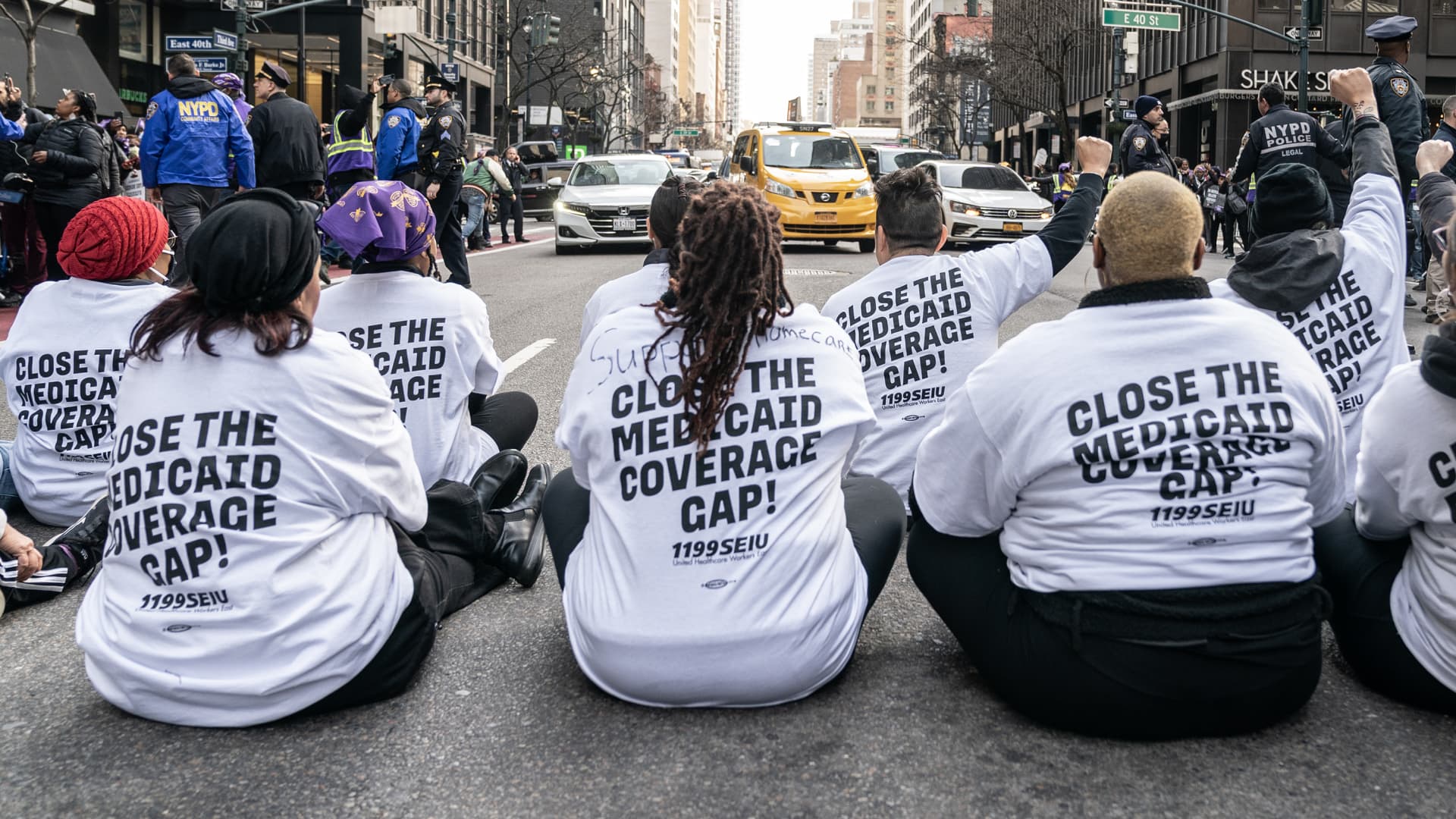Hundreds of 1199SEIU health care workers staged a rally and sit-in on 3rd Avenue, resulting in some arrests. Their protest was against the health care cuts proposed in Governor Kathy Hochul’s budget for Medicare.
Lev Radin | Lightrocket | Getty Images
Medicare announced on Friday that it will no longer enforce a confidentiality requirement, allowing pharmaceutical companies to publicly discuss the details of the program’s historic drug price negotiations. This decision comes after the industry argued that the requirement violated their First Amendment rights, leading to lawsuits filed earlier this month.
In the initial guidance released in March, Medicare had prohibited the industry from disclosing information about the initial lower price offered by the federal government for drugs under the program, as well as the government’s reasons for selecting that price point. Medicare also prohibited companies from sharing any verbal conversations that occurred during the negotiation period and required them to destroy any related information within 30 days if the drug was no longer selected for negotiations.
However, in the revised guidance released on Friday, Medicare stated that companies now have the discretion to publicly disclose information regarding ongoing negotiations. This change reflects the Inflation Reduction Act passed last year, which granted Medicare the power to directly negotiate drug prices with pharmaceutical companies for the first time. The program is a crucial component of the Biden administration’s efforts to tackle the issue of rising drug prices in the United States.
Merck, the U.S. Chamber of Commerce, Bristol Myers Squibb, and the industry lobbying group Pharmaceutical Research and Manufacturers of America have all filed lawsuits this month, challenging the constitutionality of the drug price negotiations. They argue that Medicare’s confidentiality requirement imposed a gag order, preventing companies from publicly disagreeing with the government’s position, thereby violating their First Amendment rights. These lawsuits also raise broader claims that the program violates due process and constitutes the seizure of private property without just compensation under the Fifth Amendment of the U.S. Constitution.
In response to the industry’s lawsuits, Health and Human Services Secretary Xavier Becerra affirmed the determination to proceed with the negotiations, regardless of the legal challenges.
“Pharmaceutical companies have been reaping record profits for decades,” stated Becerra in a press release. “Now, they are attempting to impede this Administration’s efforts to negotiate better drug prices for our families. However, we will not be deterred.”
HHS plans to release a list of ten high-cost drugs selected for negotiation by September. The companies will then have to decide whether to participate in the negotiations the following month. If they choose not to participate, they will face significant financial penalties. However, they can avoid these penalties by withdrawing from Medicare and Medicaid drug rebate programs, although this is not a viable alternative for many companies since these programs account for a substantial portion of the nation’s annual spending on prescription drugs.
Denial of responsibility! VigourTimes is an automatic aggregator of Global media. In each content, the hyperlink to the primary source is specified. All trademarks belong to their rightful owners, and all materials to their authors. For any complaint, please reach us at – [email protected]. We will take necessary action within 24 hours.


